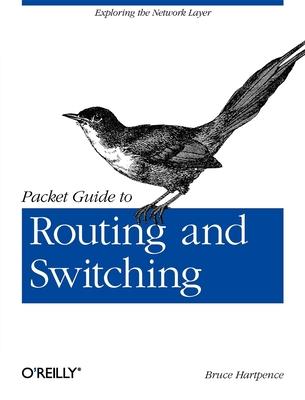Go beyond layer 2 broadcast domains with this in-depth tour of advanced link and internetwork layer protocols, and learn how they enable you to expand to larger topologies. An ideal follow-up to Packet Guide to Core Network Protocols, this concise guide dissects several of these protocols to explain their structure and operation.
This isn't a book on packet theory. Author Bruce Hartpence built topologies in a lab as he wrote this guide, and each chapter includes several packet captures. You'll learn about protocol classification, static vs. dynamic topologies, and reasons for installing a particular route.
This guide covers:
- Host routing--Process a routing table and learn how traffic starts out across a network
- Static routing--Build router routing tables and understand how forwarding decisions are made and processed
- Spanning Tree Protocol--Learn how this protocol is an integral part of every network containing switches
- Virtual Local Area Networks--Use VLANs to address the limitations of layer 2 networks
- Trunking--Get an indepth look at VLAN tagging and the 802.1Q protocol
- Routing Information Protocol--Understand how this distance vector protocol works in small, modern communication networks
- Open Shortest Path First--Discover why convergence times of OSPF and other link state protocols are improved over distance vectors
